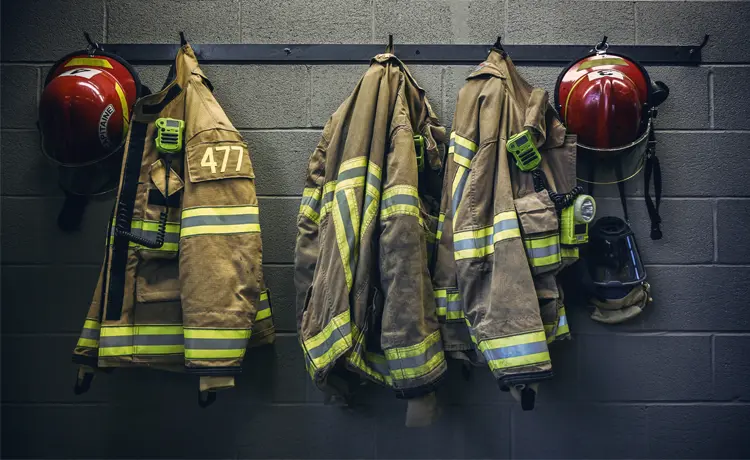From personal emergencies to large-scale natural disasters, first responders play a vital role in keeping us safe. Emergency medical services (EMS) personnel face trauma every day and are constantly putting their lives on the line for others. This can take an incredible toll on their physical, mental and emotional well-being. Effective self-care for first responders is crucial to keep effects of stress at bay. If you work in the emergency medical field and deal with high-stress situations every day, you need time to recharge. The self-care tips below can help you manage stress and keep yourself ready for duty.
 Compassion fatigue is defined as a gradual depletion of a person's ability to sympathize with traumatized populations.
Compassion fatigue is defined as a gradual depletion of a person's ability to sympathize with traumatized populations.
 The first step to managing stress is awareness. Know your triggers and listen to your body. Reflect on positive and negative emotions you're experiencing. Consider attending stress-management workshops or training sessions.
The first step to managing stress is awareness. Know your triggers and listen to your body. Reflect on positive and negative emotions you're experiencing. Consider attending stress-management workshops or training sessions.
 Make an effort to promote balance in your life. Make sure your diet is full of healthy and nutritious foods. Also make sure you're getting enough exercise and maintaining a healthy sleep schedule.
Make an effort to promote balance in your life. Make sure your diet is full of healthy and nutritious foods. Also make sure you're getting enough exercise and maintaining a healthy sleep schedule.
 Maintain a support network. Surround yourself with friends and family members that are a positive influence. Consider joining a peer support group to meet people with the same struggles as you.
Maintain a support network. Surround yourself with friends and family members that are a positive influence. Consider joining a peer support group to meet people with the same struggles as you.
 Manage your time effectively. Delegate tasks that you don't need to do yourself, learn to say "no" and set limits for yourself. A bit of forward thinking means you can allocate time for activities/hobbies that bring you joy.
Manage your time effectively. Delegate tasks that you don't need to do yourself, learn to say "no" and set limits for yourself. A bit of forward thinking means you can allocate time for activities/hobbies that bring you joy.
 Practice mindfulness. This can include yoga, tai chi or meditation. Perform a guided visualization or breathing exercises while lying in bed at night to relax you and to get ready for a restful sleep.
Practice mindfulness. This can include yoga, tai chi or meditation. Perform a guided visualization or breathing exercises while lying in bed at night to relax you and to get ready for a restful sleep.
Why Is Self-Care For First Responders Needed?
Neglecting your mental health can lead to a number of overwhelming emotions and behavioral changes. Some stress is good for you, but unchecked stress leads to aches and pains, a weakened immune system, weight loss, depression and conflicts with loved ones. It could also lead to disorders, such as compassion fatigue or PTSD. Spotting the signs and knowing when to seek help can go a long way.Getting Started
 The first step to managing stress is awareness. Know your triggers and listen to your body. Reflect on positive and negative emotions you're experiencing. Consider attending stress-management workshops or training sessions.
The first step to managing stress is awareness. Know your triggers and listen to your body. Reflect on positive and negative emotions you're experiencing. Consider attending stress-management workshops or training sessions.
 Make an effort to promote balance in your life. Make sure your diet is full of healthy and nutritious foods. Also make sure you're getting enough exercise and maintaining a healthy sleep schedule.
Make an effort to promote balance in your life. Make sure your diet is full of healthy and nutritious foods. Also make sure you're getting enough exercise and maintaining a healthy sleep schedule.
 Maintain a support network. Surround yourself with friends and family members that are a positive influence. Consider joining a peer support group to meet people with the same struggles as you.
Maintain a support network. Surround yourself with friends and family members that are a positive influence. Consider joining a peer support group to meet people with the same struggles as you.
 Manage your time effectively. Delegate tasks that you don't need to do yourself, learn to say "no" and set limits for yourself. A bit of forward thinking means you can allocate time for activities/hobbies that bring you joy.
Manage your time effectively. Delegate tasks that you don't need to do yourself, learn to say "no" and set limits for yourself. A bit of forward thinking means you can allocate time for activities/hobbies that bring you joy.
 Practice mindfulness. This can include yoga, tai chi or meditation. Perform a guided visualization or breathing exercises while lying in bed at night to relax you and to get ready for a restful sleep.
Practice mindfulness. This can include yoga, tai chi or meditation. Perform a guided visualization or breathing exercises while lying in bed at night to relax you and to get ready for a restful sleep.
Negative Coping Habits to Avoid
- Don't work harder or longer hours.
- Don't constantly complain to coworkers.
- Don't neglect your health.
- Don't abuse alcohol/drugs.
